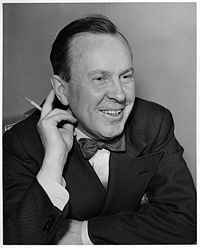Lester B. Pearson Prime minister
Lester Bowles "Mike" Pearson, PC, OM, CC, OBE (23 April 1897 – 27 December 1972) was a Canadian scholar, statesman, soldier and diplomat, who won the Nobel Prize for Peace in 1957 for organizing the United Nations Emergency Force to resolve the Suez Canal Crisis. He was the 14th Prime Minister of Canada from 22 April 1963 to 20 April 1968, as the head of two back-to-back Liberal minority governments following elections in 1963 and 1965.During Pearson's time as Prime Minister, his Liberal minority governments introduced universal health care, student loans, the Canada Pension Plan, the Order of Canada, and the new Flag of Canada. Pearson also convened the Royal Commission on Bilingualism and Biculturalism, and he struggled to keep Canada out of the Vietnam War. In 1967, his government passed Bill C-168, which abolished capital punishment in Canada de facto - by restricting it to a few capital offenses for which it was never used, and which themselves were abolished in 1976. With these accomplishments, together with his groundbreaking work at the United Nations and in international diplomacy, Pearson is generally considered among the most influential Canadians of the 20th century and is regularly ranked as one of the greatest Canadian Prime Ministers.
Personal facts

| Alias (AKA) | Mike |
|---|---|
| Birth date | April 23, 1897 |
| Birth name | Lester Bowles Pearson |
| Birth place | |
| Religion | |
| Date of death | December 27, 1972 |
| Place of death | |
| Resting place | |
| Education | |
| Spouse | |
| Children | |
| Profession |
Search
Politician
| governorgeneral | |
|---|---|
| monarch | |
| office | Leader of the Opposition Leader of the Liberal Party of Canada 8th Secretary of State for External Affairs Second Canadian Ambassador to the United States 8th President of the United Nations General Assembly |
| party | |
| prime minister | |
| successor |
Prime minister
| From | September 10, 1948 |
|---|---|
| To | June 20, 1957 |
Topical connections
Lester B. Pearson on Wikipedia
External resources
- http://collections.ic.gc.ca/discourspm/anglais/lbp/bio.html
- http://www.cbc.ca/archives/categories/war-conflict/peacekeeping/peacekeepers-and-peacemakers-canadas-diplomatic-contribution/pearson-wins-nobel-peace-prize.html
- http://www.nobelprize.org/nobel_prizes/peace/laureates/1957/pearson-lecture.html
- http://www.suezcrisis.ca
- http://www.thecanadianencyclopedia.com/index.cfm?PgNm=TCE&Params=A1ARTA0006175